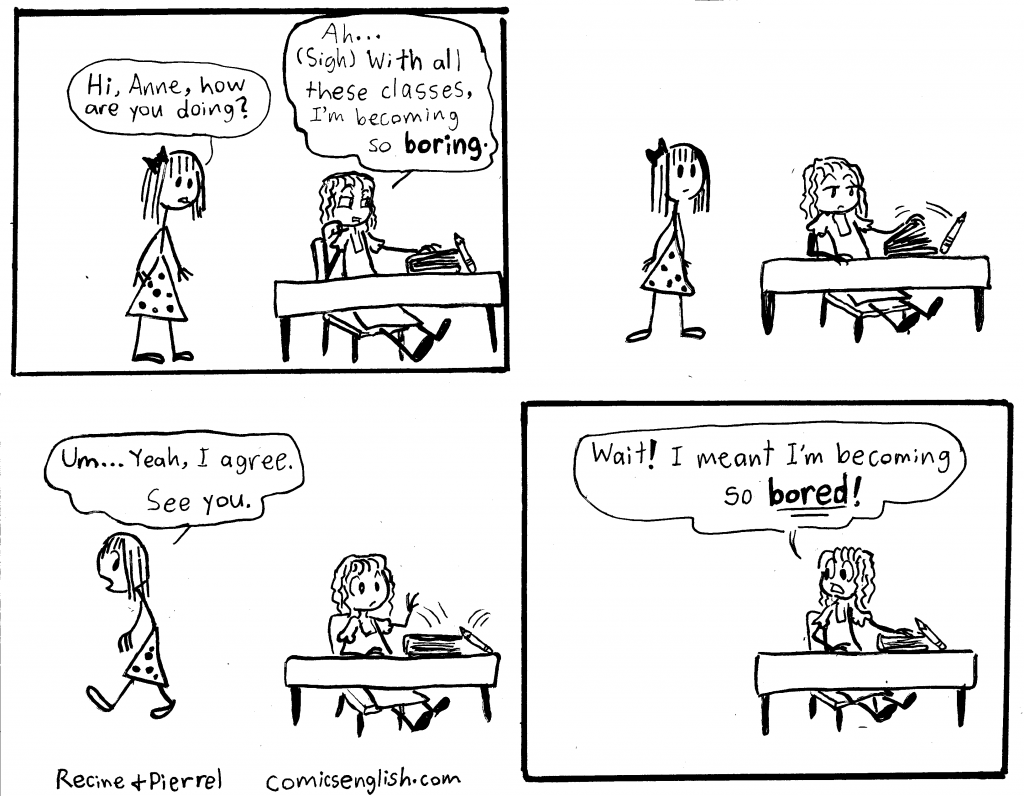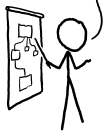
Mistake Realities: Bored vs. Boring. Recine & Pierrel. Comics English
[slickquiz id=2]
Transcript
- Box 1:
- [Anne’s friend:] Hi, Anne, how are you doing?
- [Anne:] Ah… (sigh) With all these classes, I’m becoming so boring.
- Box 3:
- [Anne’s friend:] Um… Yeah, I agree. See you.
- Box 3:
- [Anne:] Wait! I meant I’m becoming so bored!
Vocabulary
- Sigh (n.) /saɪ/ to breathe out slowly and noisily, expressing boredom, tiredness, sadness, etc.
- Boring (adj.) /ˈbɔːrɪŋ/ If things or people are boring, they are not interesting or exciting… When something is boring, it will make you feel bored.
- Bored (adj.) /bɔːd/ You feel bored when you have nothing to do, or when you feel tired and unhappy because there is nothing interesting happening.
Rules for The Bored vs. Boring Problem
Learners of English often have mix those two terms. As we can see above, it can lead to awkward situations! Here is the rule to help you remember it and apply it with other verbs that work the same way.
- First, notice that these adjectives (bored and boring) come from a verb in the first place: to bore.
- Now, the -ing form carries the notion of “doing” something (think “I’m doing something”), so it will cause something onto someone/something else.
- The -ed form carries the idea of being passive, so it indicates that it is not causing the action, but that something else made it like this.
There are many pairs that work exactly the same way. Here are a few examples:
- Annoying / Annoyed: This kid is so annoying. Now, I feel very annoyed because of him.
- Confusing / Confused: That presentation was confusing. Now I feel very confused.
- Exciting / Excited:
- Interesting / Interested: That presentation was interesting. Now I feel that I am more interested in that subject.
- Relaxing / Relaxed: This massage was so relaxing. Now I feel very relaxed.
- Tiring / Tired: This work was quite tiring. Let’s rest, I’m so tired.









